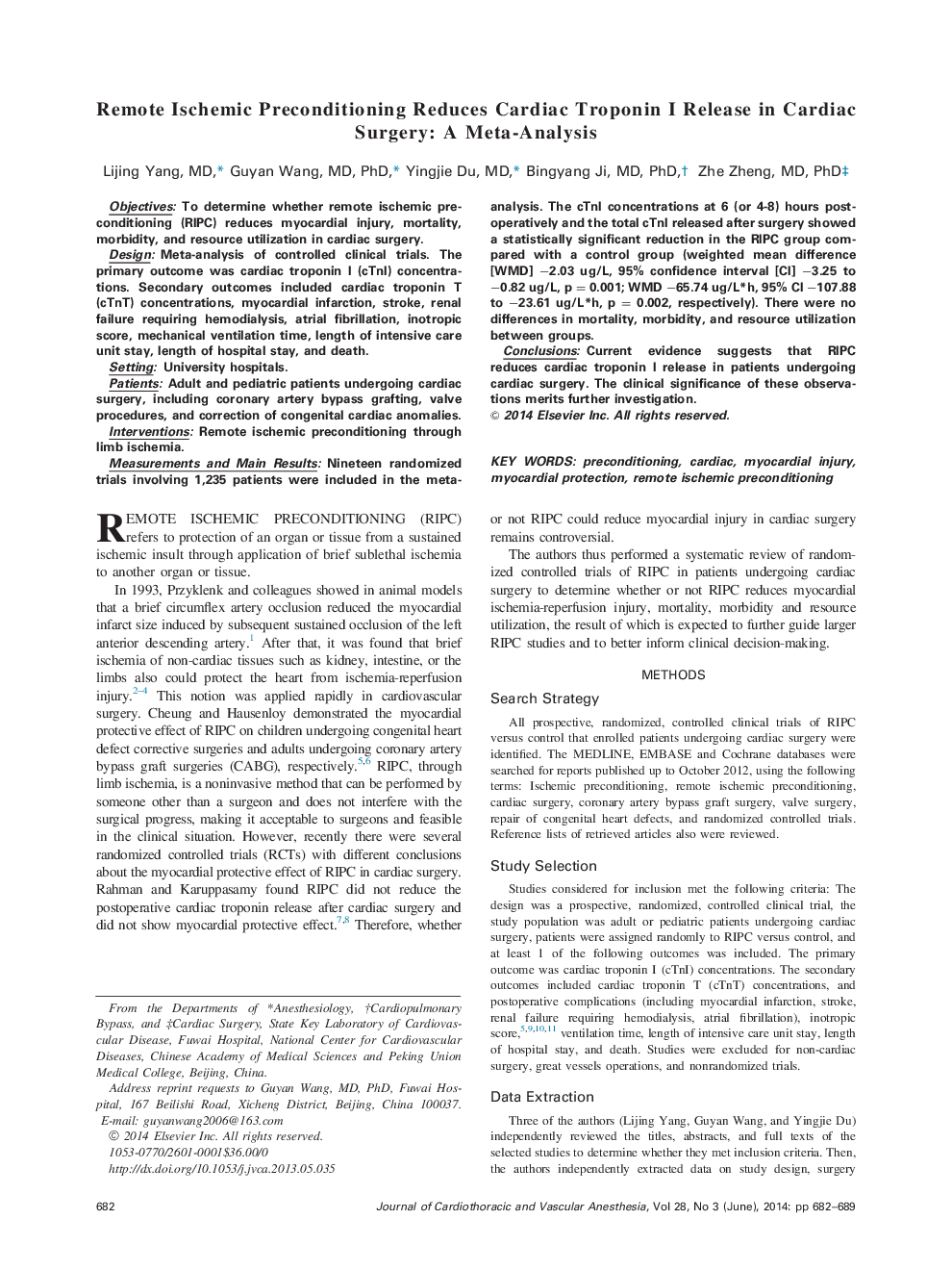| Article ID | Journal | Published Year | Pages | File Type |
|---|---|---|---|---|
| 2759189 | Journal of Cardiothoracic and Vascular Anesthesia | 2014 | 8 Pages |
ObjectivesTo determine whether remote ischemic preconditioning (RIPC) reduces myocardial injury, mortality, morbidity, and resource utilization in cardiac surgery.DesignMeta-analysis of controlled clinical trials. The primary outcome was cardiac troponin I (cTnI) concentrations. Secondary outcomes included cardiac troponin T (cTnT) concentrations, myocardial infarction, stroke, renal failure requiring hemodialysis, atrial fibrillation, inotropic score, mechanical ventilation time, length of intensive care unit stay, length of hospital stay, and death.SettingUniversity hospitals.PatientsAdult and pediatric patients undergoing cardiac surgery, including coronary artery bypass grafting, valve procedures, and correction of congenital cardiac anomalies.InterventionsRemote ischemic preconditioning through limb ischemia.Measurements and Main ResultsNineteen randomized trials involving 1,235 patients were included in the meta-analysis. The cTnI concentrations at 6 (or 4-8) hours postoperatively and the total cTnI released after surgery showed a statistically significant reduction in the RIPC group compared with a control group (weighted mean difference [WMD] −2.03 ug/L, 95% confidence interval [CI] −3.25 to −0.82 ug/L, p = 0.001; WMD −65.74 ug/L*h, 95% CI −107.88 to −23.61 ug/L*h, p = 0.002, respectively). There were no differences in mortality, morbidity, and resource utilization between groups.ConclusionsCurrent evidence suggests that RIPC reduces cardiac troponin I release in patients undergoing cardiac surgery. The clinical significance of these observations merits further investigation.
